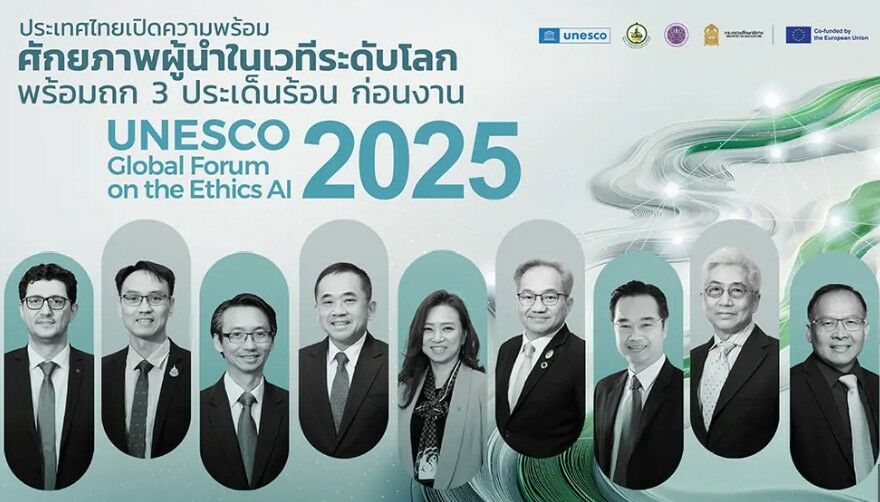

Computing capabilities, data interoperability, and policy harmonisation are essential elements of ASEAN regional collaboration in developing artificial intelligence (AI) capabilities, according to UNESCO.
The organisation emphasises Thailand’s potential to position itself as a strategic hub for AI capacity building, strengthening its leadership in Southeast Asia’s digital future.
Thailand recently hosted the UNESCO Global Forum on the Ethics of AI, marking the first time the event was held in the Asia-Pacific region. This event highlighted Thailand’s expanding influence in the governance of emerging technologies.
“The global spotlight is on Thailand and the developments taking place here in terms of governing this technology and its policy innovation,” said Irakli Khodeli, head of the Ethics of AI Unit under UNESCO’s Social and Human Sciences Sector, to the Bangkok Post.

The forum attracted various stakeholders from 88 countries, including 35 ministers, 13 intergovernmental bodies, and businesses like SAP, Microsoft, and Salesforce. Khodeli noted that Thailand’s commitment to AI is evident through the establishment of the AI Governance Practice Centre, which UNESCO sees as a regional hub for AI capacity building in ASEAN.
Two significant global networks were launched in Bangkok. The first, the Global Network of AI Supervisory Authorities, aims to promote AI by developing effective supervisory frameworks. This network encourages experience sharing among countries with different AI supervision approaches.

The second network, the Global Network of Civil Society Organisations and Academia for Ethics of AI, is based on the belief that effective AI policies require diverse participation, including special interest groups, women, ethnic minorities, persons with disabilities, and young people. This network seeks to involve civil society organisations in discussions about ethical AI use and development, providing capacity building, experience sharing, and advocacy training.
Ethics
UNESCO highlights the need to move from discussions about ethical principles, established in its Recommendation on the Ethics of AI adopted by 194 member states, to concrete actions and impacts.
“We need to shift our attention from talking about ethical principles and frameworks because we already have one. We need action and impact,” Khodeli said.
UNESCO advocates for “governance rather than regulation” of AI, as effective AI governance extends beyond mere regulation. This approach requires investments and incentives to foster positive AI outcomes that serve the public interest, addressing complex socio-environmental and economic challenges. Khodeli said that, despite most AI investments focusing on commercial purposes, AI has the potential to deliver significant advancements in fields such as medicine, agriculture, and urban planning.
The focus on ethical AI includes combating discrimination, bias, misinformation, and job displacement. Khodeli envisions ASEAN collaboration on compute and cloud capacity, given that many AI systems are compute-intensive and resources are limited, reported Bangkok Post.
There is also a necessity to harmonise data to facilitate safe and trustworthy cross-border data flow. The more data countries possess, the more accurately they can develop AI models, which poses a challenge for smaller nations.
Pooling data at a regional level offers the advantage of developing better AI models applicable to individual country contexts while ensuring inclusivity in datasets. As AI transcends borders, a harmonised regional AI policy is crucial to prevent talent and technology migration to more lenient environments.
The story UNESCO: Thailand primed to lead ASEAN AI revolution as seen on Thaiger News.
